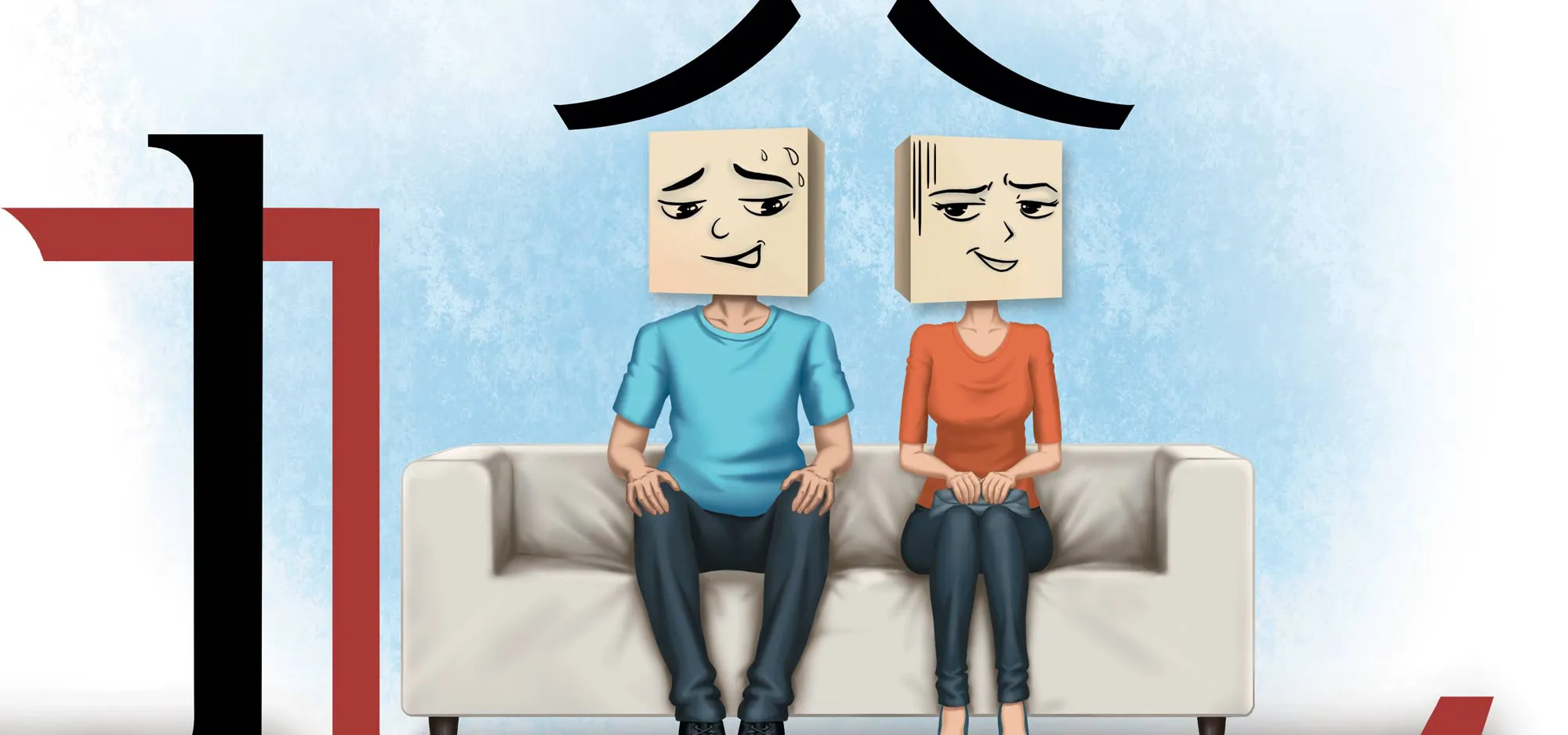Awkwardness for daily Chinese conversations
Picture the scene: You’re having a pleasant conversation when someone else joins in, and says something awkward, inappropriate, or utterly irrelevant. An awkward silence follows—someone has to resurrect the conversation, even though everyone knows that things are now weird, but they’re still talking and oh god why won’t it stop?
In China, these moments are known as 尬聊 (gàliáo), literally “embarrassing chat”, with 尬 (gà) from 尴尬 (gāngà, embarrassment) and 聊 (liáo) meaning “chat.” One famous offender is Chen Luyu, one of several TV hosts dubbed by some as “China’s Oprah” due to her popular talk show A Date With Luyu, but who might as well be China’s Alan Partridge for all her regular galiao moments. Once, when her guest Zhang Chaoyang, CEO of Sohu, described being “on a plane, watching the moon in the night sky, full of emotions…” Chen interrupted to ask, “How could you see the moon in the plane?” “Because the plane has windows,” Zhang politely explained, after a meaningful if brief pause. Viewers remarked “主持人又在尬聊了。” (Zhǔchírén yòu zài gàliáo le. The host is embarrassingly chatting again.)
“Embarrassing talk” doesn’t have to be one-sided: It can refer to any conversation that takes place in an excruciating atmosphere. This might be a bad date (“我们完全就是在尬聊。Wǒmen wánquán jiùshì zài gàliáo. We were totally embarrassingly chatting.”) or an unsuccessful negotiation. (“什么也没谈成,就是在尬聊。Shénme yě méi tán chéng, jiùshì zài gàliáo. Nothing was settled, just an embarrassing chat.”)
And of course, embarrassment doesn’t only exist in conversation. In daily life, a 尬-prefixed verb can describe any kind of blunder. Terrible acting in a movie could be 尬演 (gàyǎn, embarrassing acting), implying that an actor’s performance is so poor, viewers feel uncomfortable watching it. A flattering review of said film would accordingly be 尬评 (gàpíng, embarrassing review), something so blatantly false it’s shameful to read. Note that bad dancing may be called 尬舞 (gàwǔ, embarrassing dance), but the term 尬舞 can also refer a “break-dancing battle,” which has nothing to do with a choreographic gaffe and actually predates the use of 尬 for embarrassments all and sundry.
With the term so commonly used, some people have begun to reflect on the fact that they feel embarrassed so frequently, it’s almost a disease—尴尬症 (gāngàzhèng, embarrassment syndrome), or, more seriously, 尴尬癌 (gāngà’ái, embarrassment cancer). For instance, 听着他们尬聊,我尴尬癌都要犯了。(Tīngzhe tāmen gàliáo, wǒ gāngà’ái dōu yào fàn le. Listening to their embarrassing talk, my chronic embarrassment cancer strikes again.)
But unlike real cancer, there are straightforward cures to embarrassment, such as thinking before you speak, or just finding a new circle of friends.
For Shame! is a story from our issue, “Down to Earth.” To read the entire issue, become a subscriber and receive the full magazine.












